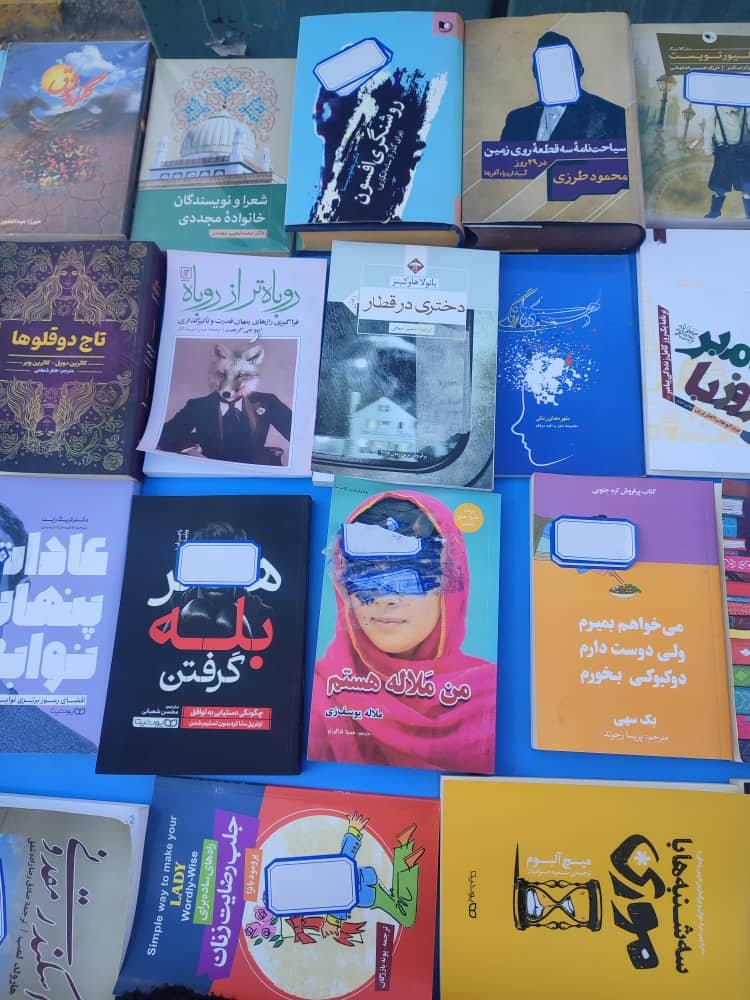Book Bans: A Decline in Access to Academic Resources for Monograph and Thesis Writing

Under the control of the Taliban, the Ministry of Information and Culture has imposed a ban on the printing, import, and sale of certain books. The Taliban claim these books are “against national interests, anti-Islamic, destructive to minds, and propagandistic.”
As a result, a number of university students currently in their final semesters and engaged in writing their undergraduate monographs or master’s theses are complaining about the lack of access to academic resources for their research.
Irfanullah Cheragh, a third-year student at the Faculty of Journalism at Kabul University, said that recently, a Taliban commission collected thousands of books from bookstores under the pretext of containing “un-Islamic” content. This, he explained, has not only weakened the culture of reading but has also created significant problems for students.
According to him, students nearing graduation are struggling to find reference materials for their monographs.
He further noted that the Taliban have removed these books from bookstores in all provinces, labeling them as “against national interests, anti-Islamic, destructive to minds, and propagandistic.”
Cheragh emphasized that the list of banned books includes important academic resources for students, and their absence has disrupted the educational process.
He added: “Even though young people’s interest in reading has already declined, students writing monographs cannot find their references because the Taliban have banned many political, cultural, and social books. These books are no longer available in the market, which has further weakened the culture of study and research.”
Mohammad Hashem Wisal, a master’s student in the Department of Language and Literature at Nangarhar University, said that the sources he had proposed to his advisor in his previous semester are now unavailable in bookstores, which has raised serious concerns for him.
“My thesis topic is ‘The Creativity of Female Writers in Afghanistan,’” Wisal said. “I wanted to use the works of female poets and writers as references, but for the past month, I have not been able to find any of those books, as they have all been removed from circulation.”
While the Taliban have banned the purchase and sale of certain books, some young people have turned to online platforms and social media to find content they’re interested in.
Rahmanullah Sapi, a student of Law and Political Science at Nangarhar University, said that several political books have recently disappeared from the market due to Taliban restrictions.
He expressed concern about his future and urged young people to endure these challenges and use the situation to their advantage.
Sapi added: “Yes, most political and other category books are no longer available in the city due to the ban, so we are forced to download books online and read them. However, online access also comes at a cost, so the book bans should be lifted.”
At the same time, university professor Faqirullah Hemat acknowledged that the list of books banned by the Taliban includes some that are essential for students, and their absence has negatively affected the academic environment.
He noted that the more access to books is restricted, the less scholarly work will be produced. As access to books decreases, future generations will have reduced access to academic research, which will lower both intellectual growth and the awareness levels of young people.
Hemat said: “The banned books include texts relevant to various academic departments, and since these are no longer available in the market, students have no choice but to rely on the internet. But not all students have access to the internet, and this situation is having a negative psychological impact on them.”
Meanwhile, booksellers in Mazar-e-Sharif say that book sales have declined by 90% compared to previous times.
Mohammad Jawad Nabizada, a bookstore manager in Mazar-e-Sharif, said that a Taliban commission gave them a list of more than 400 book titles that are now banned from printing, purchase, and sale.
According to him, surveillance over publishers and bookstores has increased significantly under Taliban rule.
Nabizada added: “All book vendors have been ordered not to sell or distribute books that are considered against national interests or Islam. This has deeply affected the book market, and many businesses have come to a standstill. Now, bookstores are filled with religious books, which have fewer readers.”
According to reports, the books the Taliban have confiscated from bookstores and libraries include topics on war and peace, democracy, state-building, and history. Additionally, the Taliban have provided booksellers with a list of 78 more titles and instructed them to cease their import and sale.
This comes in the wake of earlier Taliban directives to universities and public schools to purge their libraries of any books published against the Taliban and to replace them with “Seerat” books — biographies of the Prophet Muhammad.
